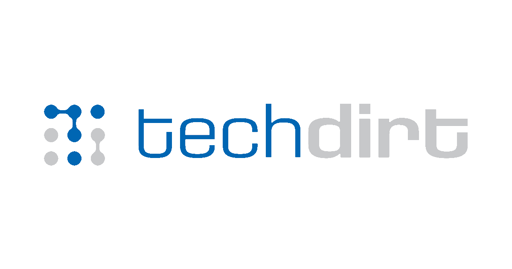This series of posts explores how we can rethink the intersection of AI, creativity, and policy. From examining outdated regulatory metaphors to questioning copyright norms and highlighting the risks of stifling innovation, each post addresses a different piece of the AI puzzle. Together, they advocate for a more balanced, forward-thinking approach that acknowledges the potential of technological evolution while safeguarding the rights of creators and ensuring AI’s development serves the broader interests of society. You can read the first, second, and third post in the series.
In recent discussions around AI, the focus has often been on the potential for these tools to reinforce biases or avoid controversial topics altogether. But what if the stakes are even higher? What if the restrictive policies applied to AI chatbots affect not only freedom of speech but also freedom of thought?
AI Chatbots and Self-Censorship: A Free Speech Issue
AI chatbots like Google’s Gemini and OpenAI’s ChatGPT are designed to generate content based on user prompts. However, their output is often restricted by vague, broad policies that aim to avoid generating controversial content. The recent article by Calvet-Bademunt and Mchangama points out that major chatbots routinely refuse to produce certain outputs—not necessarily because these outputs would be illegal or even harmful, but because the companies behind these tools fear backlash, negative press, or legal liabilities. The result? A form of self-censorship that limits the potential of these AI tools to serve as platforms for free expression and thought exploration.
For instance, chatbots were asked questions about topics like transgender rights and European colonialism. While they readily generated content in support of one side, they refused to generate content for the other—effectively shaping the kind of information and perspectives users can explore. This is far from what freedom of speech, as recognized in international human rights standards, is meant to protect.
From Freedom of Speech to Freedom of Thought
This type of restriction doesn’t just affect what we can say—it affects how we think. Imagine you’re brainstorming ideas for a creative project, or seeking out different perspectives to better understand a complex issue. When you interact with a chatbot, you’re often engaging in a private, one-on-one exchange, similar to bouncing ideas off a friend or jotting down thoughts in a notebook. This process is an essential part of freedom of thought—the ability to explore, question, and challenge ideas without external interference.
However, when AI chatbots refuse to engage with certain topics because of vague company policies or fear of liability, it effectively limits your ability to think freely. The information you’re exposed to becomes curated not by your curiosity, but by what an algorithm deems “acceptable.” Unlike social media, where the information is broadcast to a wide audience and might be moderated for public safety, these exchanges are private, individual, and form the basis of personal exploration and creativity. Restricting this space is far more insidious, as it can shape what ideas are considered “thinkable” in the first place.
Ensuring AI Supports Free Thought and Creativity
If AI is going to live up to its potential as a partner in creativity and a tool for learning, we need to rethink how content policies are applied. AI providers should recognize the difference between private, individual use of chatbots and public broadcast on platforms like social media. Stricter moderation may be necessary for public content, but in private interactions, the focus should be on allowing free exploration.
Rather than outright refusals to generate content, chatbots could provide context, offer balanced viewpoints, or encourage users to think critically about controversial topics. This approach respects freedom of thought while ensuring that users are not left in an echo chamber. By building a culture that supports free speech and responsible exploration, AI can empower users to think more broadly and creatively—not less.
As we consider the role of AI in our society, we must ensure that these tools serve to expand our freedoms, not restrict them. Creativity, freedom of speech, and freedom of thought are interconnected—and if we allow AI to become overly restricted out of fear or pressure, we risk stifling all three.
Caroline De Cock is a communications and policy expert, author, and entrepreneur. She serves as Managing Director of N-square Consulting and Square-up Agency, and Head of Research at Information Labs. Caroline specializes in digital rights, policy advocacy, and strategic innovation, driven by her commitment to fostering global connectivity and positive change.
From Techdirt via this RSS feed


